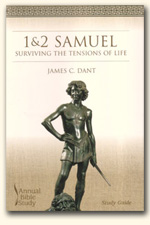Books

This I Know: A Simple Biblical Defense for LGBTQ Christians
Jesus loves me, this I know.
For the Bible tells me so.
These words may ring hollow in the ears of a member of the LGBTQ community. They learned the tune as children. They memorized the words. They delighted in the idea of being cherished by God and guarded by scripture. But somewhere along the way, someone in the church turned the Bible into a weapon and Jesus into an inaccessible friend. Many of the LGBTQ people I’ve come to know have had to learn to trust this song again. They’ve had to be reintroduced to the Jesus who loves them and to the Bible that guards them. I want my LGBTQ brothers and sisters to know, Jesus loves them and the Bible says no different.
You owe no assailant a thorough explanation of your beliefs. Most of your critics could not provide a cohesive theological explanation of their beliefs beyond, “There’s a verse in the Bible that says…” Second, they are not in conversation with you to be convinced of anything themselves. It is not a true dialogue. They are not thinking. They are simply protecting their ideas, dogma, and personal fears from the intrusion of grace. Sadly, people who fail to offer grace have rarely allowed themselves to enjoy the full measure of grace afforded them. In the end they are trying to condemn or convince you. So use these arguments if you wish, or simply hold them close and sing with confidence, “Jesus loves me; this I know. For the Bible tells me so.”

What’s a Nice God Like You Doing in a Place Like This?: A Completely Unorthodox Devotional Guide
with Becky Ramsey
Most of us don’t live our lives from one sparkly mountain top moment to the next. We aren’t skipping through our days holding God’s hand as doves coo and rainbows flash across the sky to the beat of Amazing Grace. Yet the Psalmist insists that God is always there beside us. If we really believe that, shouldn’t we keep an eye out for God? Search the grimy corners as well as the flowery meadows? Scan the aisles of Walmart and the soccer field, the cubicle and the laundry room?
In What’s a Nice God Like You Doing in a Place Like This? Jim Dant and Becky Ramsey mine their lives for the divine and, lucky for us, find God’s fingerprints all over their days. Read along as they spot God in muddy knees and kidney stones, at poker tables and chemistry class, in the words of a homeless grandmother and a rock star.
As you walk with them through a year of holy surprises, Dant and Ramsey hope you’ll join in the fun, frisking your own life for God’s sacred presence. You may even find yourself asking the question, What’s a Nice God Like You Doing in a Place Like This? Follow the authors’ lead and listen to God speak through the holy souvenirs he’s dropped in your lap, whispering, “You are my beloved. How could I be anywhere else?”

Finding Your Voice: How to Speak Your Heart’s True Faith
Answers offered by the most religiously conservative among us frequently sound too narrow. Questions asked by those outside the faith seem broad and unmoored. As thoughtful Christians, we often find it difficult to talk about our faith because at one extreme we’re met with simplistic truths and at the other extreme complex wonderings. In Finding Your Voice, Jim Dant offers the thinking Christian a manageable and credible faith language. While respecting the evangelical language of his childhood and those who gave it to him, Jim addresses and offers fresh language regarding the issues of: God, Scripture, Jesus, Salvation, the church, the world, and more. He provides a language for the things we believe but are not quite sure how to say. Jim takes us to his childhood home and introduces us to the language offered him by his faith community. He gives an honest accounting of that faith and, with an extreme dose of humanity and trust, shares with us how that faith has changed. The result is a language that makes sense both in and out of church. Whether you agree or disagree with Jim’s conclusions, you are invited into a conversation and perhaps the discovery of your own voice.

One Pastor, Twelve Steps: Preaching My Way Through the Valley of the Shadow of Addiction

The Truth Is Sensational Enough: Meditations for the Church Year
Holidays come around every year. The older we get, the faster they come. And, the older we get, the less magical they often seem. Ministers struggle to find new and captivating angles on the stories that have been told and retold for centuries. The rest of us just struggle to find some meaning amid all the sensationalism that typically surrounds these holy days. In The Truth is Sensational Enough, Jim Dant offers hope for both the preacher and the listener. Beginning with the season of Advent, Dant guides us to Christmas, Epiphany, Lent, Holy Week, Easter and Pentecost. Added to these prominent holy days are sermons and thoughts for Saint Valentine’s Day, All Saints Day, national holidays, and even Stewardship Sunday! Not in the holiday mood? No problem. The lessons and insights tucked into these pages would be welcomed on any day of your life. The nature of these meditations is rooted in the author’s background. His faith background, however, is much broader than his geographic home. He was born to a Jewish mother, eventually christened into the Roman Catholic church, adopted as an elementary-age student into a Baptist family and finally educated at a Presbyterian seminary. It is from that rich background that he shares these stories and sermons with us.

1 & 2 Samuel: Surviving the Tensions of Life
It was the beginning of a long night of darkness, fear, and isolation for the Israelite people. The approximate date 586 BC marks the beginning of the Babylonian exile. The city of Jerusalem had fallen to Babylonian warriors. The temple in Jerusalem was destroyed. The sons and daughters of Abraham and Sarah were carried captive to a foreign land. The land promised to Abraham, approached by Moses, possessed by Joshua, ruled by judges, expanded by kings, and loved by all Israel was now miles and memories away. But deep within the memories of the Israelites was a library of stories and songs.
Desolate moments drive us to find peace and hope in the stories and songs that move amid our memories. The books of 1 and 2 Samuel contain a collection of stories (and even a few songs) from Israel’s memory that fostered hope for fearful readers. These stories took place in the lives of Samuel, Saul, and David between 1020 and 961 BC. While these narratives certainly have historic significance in the context in which they occurred, their greater significance may be found in the context of when they were recalled, recorded, and retold.
Most scholars believe that the stories in 1 and 2 Samuel were compiled and written during the period of Israel’s history leading toward and through the Babylonian exile. More than three centuries after these stories occurred, they were remembered and retold. Why? Why were these stories recalled during the exile? What do these stories say about God and Israel? How did these stories bring peace and hope to the long dark night of Israel’s captivity? Is it possible that these stories can bring hope to the tense and tumultuous times of our lives as well?
